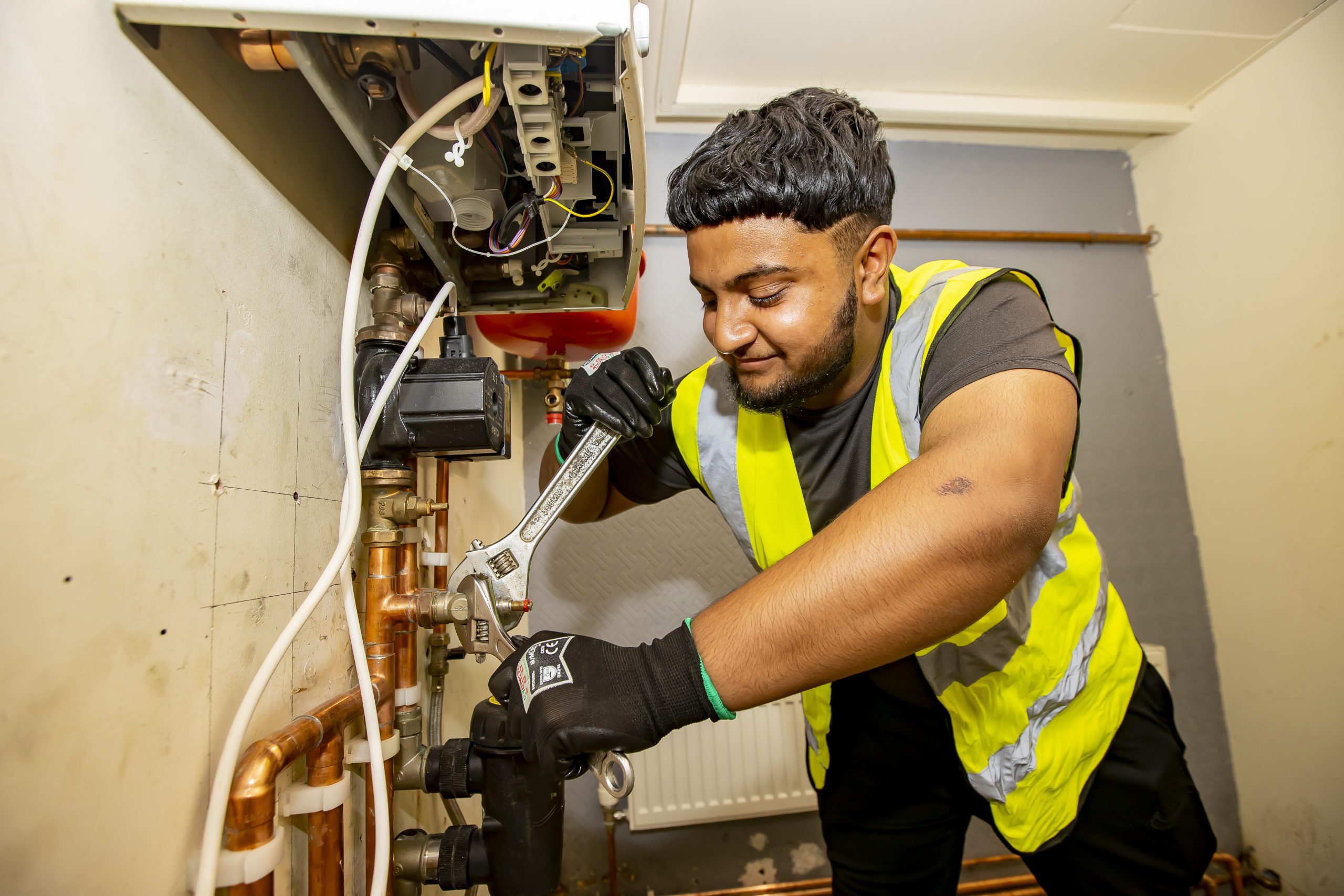
Notice
We have seen extremely high demand for this area and all places have now been allocated.
Technical skills for green jobs
Course Summary
Plumbing involves installing, maintaining, and repairing systems that carry water, gas, and waste in buildings and infrastructure. Plumbers work on pipes, fixtures, and appliances such as sinks, toilets, water heaters, and drainage systems to ensure safe and efficient water supply and waste disposal.
Plumbing suits individuals who are practical, enjoy hands-on work, and have strong problem-solving skills. It's ideal for people who like working with tools, troubleshooting issues, and ensuring essential systems in homes and businesses function properly. Those who are detail-oriented and comfortable working in various environments will thrive in this field.
Course Content
There are many elements to plumbing and depending on the level of course that you start with us you can look forward to studying many of these topics during your time with us including:
•Practical tasks in hot water, cold water and sanitation
• Central Heating
• Fundamental safe working practices
• Site preparation for working in the construction industry
• Copper pipework
• Plastic pressure pipework
• Low carbon steel pipework
• Installation, repair and maintenance of plumbing systems
• Plumbing science
• Structure of the construction industry
• Fundamental safe working practices
• Environmental and sustainability measures in domestic dwellings
• Site preparation for working in the construction industry
• Above ground drainage
• Electrotechnical engineering
• Plumbing, sanitation, and heating engineering
• Building Services Engineering (BSE) systems technology
• Scientific principles
• Applied Science for Construction and BSE systems technology
• Applied Mathematics for Construction and BSE engineering
• Construction and BSE measurement principles
• Construction and BSE information and data principles
• Relationship management in the construction and BSE sectors
• Digital technology in construction and BSE
• Construction commercial/business principles
• Building Services Engineering (BSE) systems technology
• Planned maintenance and diagnostics principles for BSE systems
• Management of Health & Safety the construction and BSE sectors
• Legislation and Regulation governing the Construction and BSE sectors
• Sustainability and Renewable Energy technologies
• Sustainability and Energy Management principles
• Building Energy Management Systems (BEMS)
• Building Information Management Systems (BIMS)
Course Assessment
You are assessed by a variety of methods including: • Practical observations • Oral questioning • Written modular tests. • Production of a portfolio of evidence • Internally and externally set assignments and/or examinations • A period of work experience between 50 and 450 hours depending on the level enrolled onto.
Materials
Protective clothing, footwear and writing materials are required.
Progression
The table shows you both the construction and engineering area routes along with the levels you are likely to study at depending upon your final GCSE grades. Offers will be made based on your indicated grades and the levels available within the progression table.
|
Area |
Expected grades when leaving school | |||
|
Level 1 - no formal qualifications needed |
Level 2 - 3 x GCSEs at grade 3 including English & Maths |
Level 3 - 4 x GCSEs at grade 4 including English & Maths |
T Level - 5 x GCSEs at grade 4 including English & Maths | |
|
Brickwork |
Yes |
Yes |
|
|
|
Carpentry |
Yes |
Yes |
|
|
|
Engineering |
Yes |
Yes |
Yes |
Yes |
|
Fabrication & Welding |
Yes |
Yes |
|
|
|
Painting & Decorating |
Yes |
Yes |
|
|
|
Plastering |
Yes |
Yes |
|
|
|
Plumbing |
Yes |
Yes |
|
Yes |
|
Surveying & Design |
|
|
|
Yes |
Entry Requirements
• No GCSE results for Level 1
• 3 x GCSEs at grade 3 including English & maths for Level 2
• 4 x GCSEs at grade 4 including English & maths for Level 3
• 5 x GCSEs at grade 4 including English & maths for T Level, Level 3
